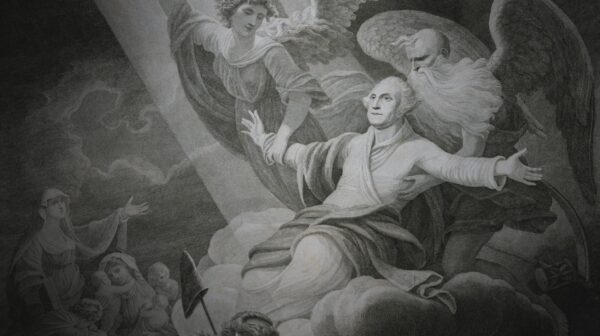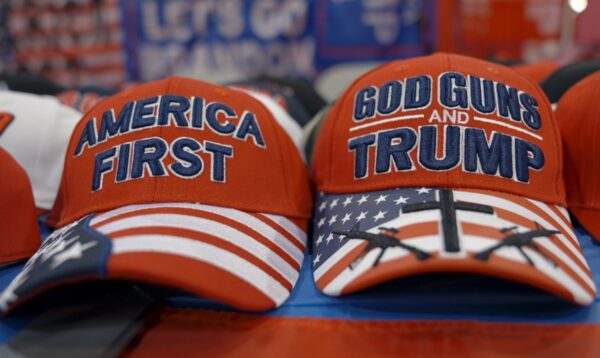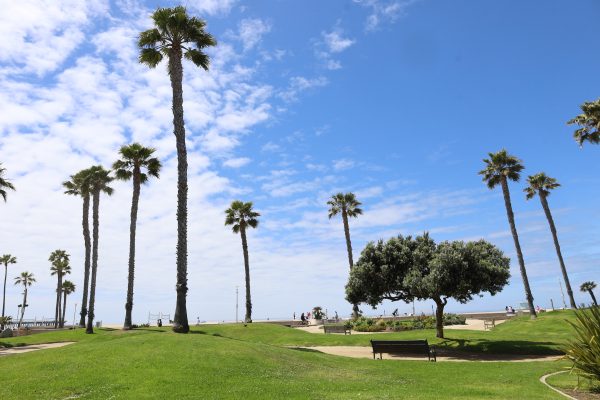“God and Country,” an excellent and rather chilling documentary directed by Dan Partland, lays out the history of the radicalization of politics in some of the largest Evangelical Christian churches and how much of it has morphed into a Christian Nationalist movement bent on changing the face of the nation to mirror their essentially all white, radically conservative views. It would appear to be a movement based on fear. Elucidating and supporting this view are some excellent interviewees including, among others, Reza Aslan, the writer renowned for his works on religion; Rev. Dr. William J Berber, II, a Protestant minister who writes regularly for the “New York Times” and “Washington Post;” Anthea Butler, chairwoman of the department of Religious Studies at the University of Pennsylvania, who has written on the history of African American religion; Sister Simone Campbell, a Presidential Medal of Honor Winner and Catholic nun; and Skye Jethani, a pastor and host of a weekly series about the intersection of culture and theology. Although the journalists and writers interviewed are very effective in explaining the shift in religious politics, it is the ministers who best explain what the consequences to religion and the ballot box are.

In this era of alternative facts, one that is circulating in certain arenas is that the United States was formed to be a Christian nation and that there is nothing in the Constitution that demands the separation of Church and State. To quote Thomas Jefferson, “We establish no religion in this country. We command no worship. We mandate no belief, nor will we ever. Church and state are and must remain separate.” When Evangelical Christians demand prayer in the schools, they are technically correct that the Constitution is silent on this issue. What the Constitution does say is “Congress shall make no law respecting an establishment of religion, or prohibiting the free exercise thereof” thus negating the claim that the United States was a Christian nation.
Religion, now and in the past, has occasionally been used as a political cudgel. Father Charles Coughlin, a Catholic priest, was one of the first to harness the air waves with hate, fascist sympathies and a direct political agenda to mobilize the population to vote against Franklin D. Roosevelt in the 1930s. In 1960, the Catholic church supported John F. Kennedy’s candidacy from the pulpit. Martin Luther King did likewise for Lyndon Johnson’s campaign against Barry Goldwater. The power of the airwaves, whether radio or television, made stars out of Bishop Fulton J. Sheen, Rex Humbard and Oral Roberts, among others. But a new era was born with the arrival of Jerry Falwell, a strident anti-communist, segregationist, and proponent of what he saw as the Republican agenda. He “created” the Moral Majority to give a voice to a decidedly minority of voters, voters whose fears he stoked. Ironically, it was Falwell who mustered evangelical support for Ronald Reagan, a twice divorced, non-church goer, against Jimmy Carter, a born-again Christian who called for racial equality and human rights. As Martin Luther King stated in 1963, “The church is often an active participant in perpetuating segregation.”

In the ensuing years, a part of this so-called Moral Majority of Evangelical Christians has morphed into what can now be called Christian Nationalists whose agenda is no longer a return to the higher ground of morality but a white conservative manifesto designed to overturn the civil rights of anyone not of their thinking, ethnicity or race —people of color, immigrants, so-called liberal thinkers and those on the LGBTQ spectrum. Harnessing this fear, a number of prominent evangelical preachers have turned the pulpit into a ballot box, successfully propelling their constituents to vote en masse as they dictate. Overtly political, they spew hate for Democrats and urge their defeat from the grandstand. Their effectiveness has been both staggering and frightening. Donald Trump received 81% of the Evangelical vote, enough, some say, to have propelled him into office. Ironic that the least God-fearing unrepentant public sinner received such support. It also shows the power of the bloc vote by the minority overwhelming the majority, something neither the Democrats nor other religious affiliations have successfully mustered.
“God and Country” has signaled an alarm. This movement of Christian Nationalism with its similarities to Germany in the 1930s and the segregationist South is scary to ponder but it is not the first time fear has been stoked to stuff the ballot box and assuredly won’t be the last. Polemics aside, this very worthy, frightening and effective documentary is an illuminating explanation of the who, the what and the why of this national trend towards an increasingly right wing ideology.
Opening February 16 at the Landmark Westwood.











